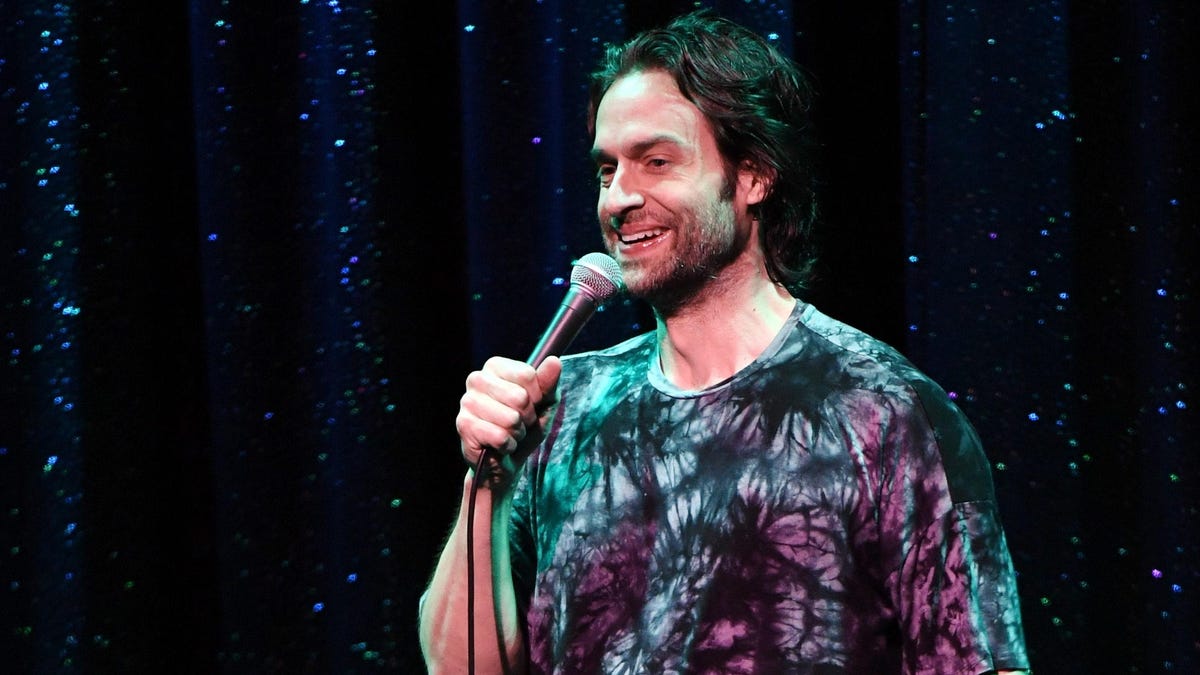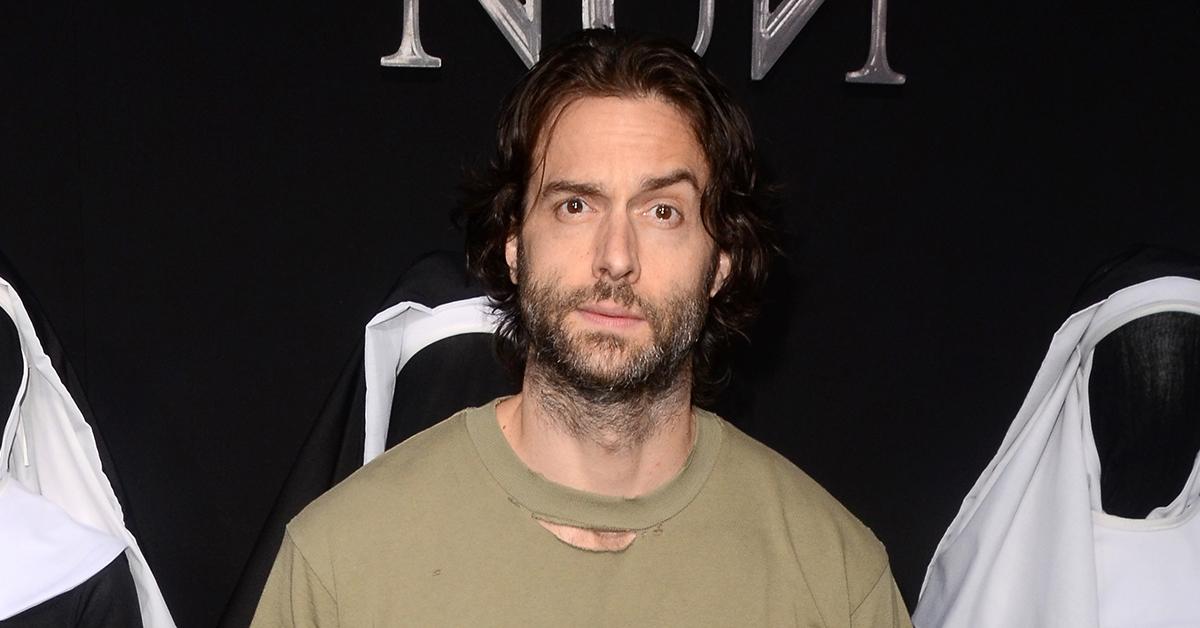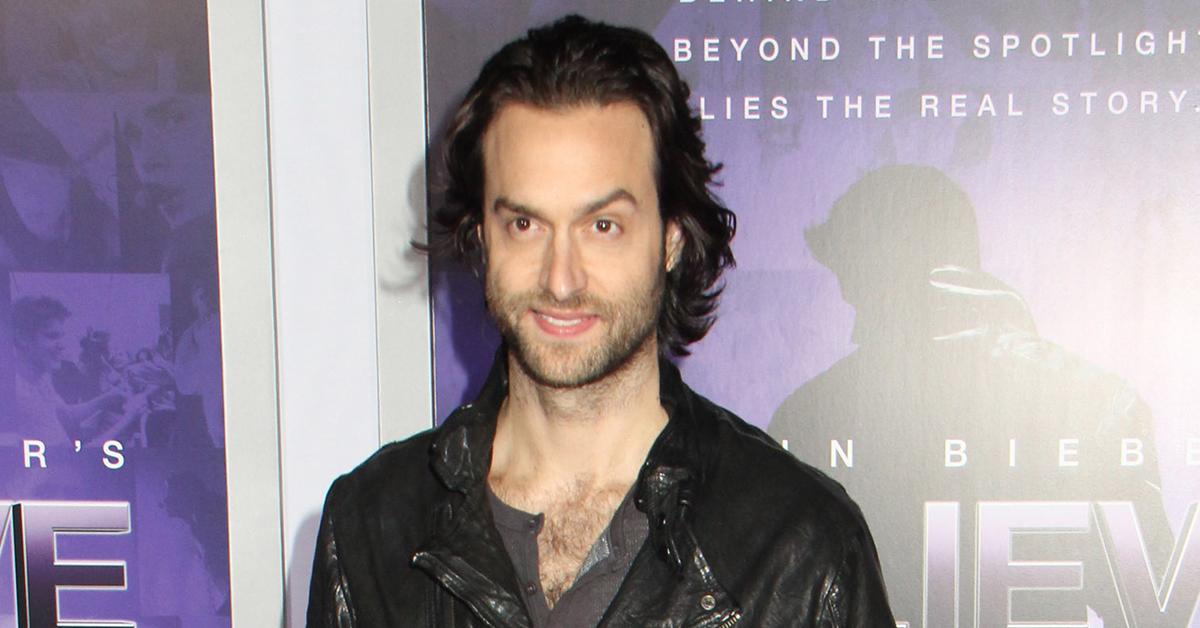Let’s just dive right into this. Chris D'Elia, once a rising star in the comedy world, became a household name thanks to his edgy humor, Netflix specials, and even a role on "The Good Place." But then, out of nowhere—or was it?—his career took a nosedive. Why was Chris D'Elia canceled? It’s a question that sparked debates across social media, and honestly, it’s a story worth unpacking. So, grab your popcorn because this drama has twists and turns that’ll leave you thinking.
Before we get too deep into the details, let’s set the scene. Chris D'Elia was riding high, with millions of fans tuning in for his stand-up routines. His comedy style was raw, unfiltered, and often controversial. But as we know, controversy doesn’t always play well when it comes to public perception. And that’s exactly what happened here.
Now, the term “canceled” gets thrown around a lot these days. But in D'Elia’s case, it wasn’t just about a hashtag or a fleeting moment of outrage. This was a full-blown reckoning that exposed some serious issues. So, buckle up, because we’re about to break it all down.
Read also:Remoteiot Vpc Network Example Your Ultimate Guide To Mastering Cloud Networking
Biography of Chris D'Elia: Who Is He, Really?
Before we dive into the scandal, it’s important to know the man behind the controversy. Chris D'Elia was born on April 12, 1979, in Chicago, Illinois. He grew up in a working-class family and discovered his love for comedy early on. D'Elia’s big break came when he started gaining traction on social media platforms like Vine, where his quick-witted humor resonated with a younger audience.
Here’s a quick snapshot of his life and career:
| Full Name | Christopher Paul D'Elia |
|---|---|
| Birthdate | April 12, 1979 |
| Birthplace | Chicago, Illinois |
| Occupation | Comedian, Actor, Writer |
| Notable Works | "The Good Place," Netflix Specials, "Workaholics" |
Why Was Chris D'Elia Canceled: The Short Version
In 2020, allegations surfaced that Chris D'Elia had been engaging in inappropriate behavior with underage girls. Text messages were leaked, showing conversations where D'Elia allegedly flirted with minors, some as young as 15. The backlash was swift and severe, with fans, fellow comedians, and industry professionals distancing themselves from him.
But here’s the thing: the story didn’t just end there. As more details emerged, the conversation shifted to broader topics like accountability, the #MeToo movement, and the culture of toxic masculinity in comedy. It’s not just about one person; it’s about the systems that allow these behaviors to persist.
Understanding the Timeline: How Did It All Go Down?
Let’s take a step back and look at the timeline of events that led to Chris D'Elia’s downfall. In June 2020, a Twitter user named @BossBitch posted screenshots of text messages between D'Elia and underage girls. The messages were explicit and raised serious red flags about his conduct.
Here’s a quick recap:
Read also:How To Manage Remoteiot For Free The Ultimate Guide
- June 2020: Text messages leaked, sparking widespread outrage.
- June 2020: Netflix pulls D'Elia’s specials from their platform.
- June 2020: NBC cancels "The Cool Kids," a show D'Elia co-created.
- July 2020: D'Elia releases a public apology, but it’s met with skepticism.
What Were the Allegations?
The allegations against Chris D'Elia were serious and disturbing. According to the leaked messages, he had been communicating with underage girls, often using pseudonyms to hide his identity. Some of the conversations were sexually suggestive, raising questions about his intentions and the power dynamic at play.
But here’s the kicker: D'Elia initially denied the allegations, claiming that the messages were fabricated. However, as more evidence came to light, he eventually issued an apology, acknowledging that he had made mistakes.
The Role of Social Media: A Double-Edged Sword
Social media played a huge role in Chris D'Elia’s cancellation. On one hand, it allowed the truth to come to light and gave a platform to victims who might not have had a voice otherwise. On the other hand, it also created a mob mentality, where people were quick to judge without all the facts.
Think about it: in today’s world, a single tweet can ruin someone’s career. And while accountability is important, it’s also crucial to ensure that justice is served fairly. The case of Chris D'Elia highlights the complexities of navigating these issues in the digital age.
How Did the Public React?
The public reaction to Chris D'Elia’s scandal was mixed. Some people were outraged, calling for him to be held accountable for his actions. Others defended him, arguing that the allegations were overblown or taken out of context. And then there were those who sat on the fence, waiting for more information to emerge.
Here’s the thing: in the age of social media, cancel culture can feel like a game of hot potato. One minute, someone’s a beloved public figure; the next, they’re being burned at the digital stake. It’s a harsh reality, but it’s also a reflection of how seriously people take issues like sexual misconduct and exploitation.
Chris D'Elia’s Apology: Did It Hit the Mark?
After the allegations surfaced, Chris D'Elia issued a public apology. In his statement, he admitted to making mistakes and expressed regret for his actions. But was it enough? Critics argue that his apology fell short, failing to address the full extent of his behavior or offer a concrete plan for accountability.
Here’s an excerpt from his apology:
"I want to sincerely apologize to anyone I’ve hurt with my words or actions. I know I’ve made mistakes, and I take full responsibility for them. Moving forward, I’m committed to doing better and learning from this experience."
While the apology was a step in the right direction, many felt that it lacked depth and sincerity. It’s a reminder that saying sorry isn’t enough if you’re not willing to change.
Can Chris D'Elia Redeem Himself?
The question on everyone’s mind is: can Chris D'Elia redeem himself? Redemption is possible, but it requires more than just an apology. It means taking real, tangible steps to address the harm caused and prevent similar behavior in the future.
Some experts suggest that D'Elia could start by seeking therapy, attending workshops on consent and boundaries, and using his platform to advocate for victims’ rights. But here’s the thing: redemption isn’t just about what you do; it’s also about how you’re perceived by others. And in the court of public opinion, that can be a tough hurdle to clear.
The Broader Implications: Beyond Chris D'Elia
While Chris D'Elia’s case is certainly shocking, it’s also part of a larger conversation about power dynamics, accountability, and the #MeToo movement. In recent years, we’ve seen numerous high-profile figures face consequences for their actions, from Harvey Weinstein to Kevin Spacey.
But what does this mean for the future of comedy? Some argue that the industry needs to do more to address toxic behaviors and create safer spaces for everyone involved. Others worry that the pendulum has swung too far, stifling creative expression and freedom of speech.
What Can We Learn From This?
Chris D'Elia’s cancellation is a cautionary tale about the dangers of unchecked power and the importance of accountability. It’s a reminder that fame and success don’t give you a free pass to behave however you want. And it’s a call to action for all of us to be more mindful of the impact our words and actions can have on others.
So, what can we learn from this? First, we need to create systems that hold people accountable for their actions. Second, we need to foster a culture of respect and consent, where everyone feels safe and valued. And finally, we need to recognize that redemption is possible—but it requires effort, humility, and a genuine commitment to change.
Conclusion: Where Do We Go From Here?
In conclusion, the question of why Chris D'Elia was canceled isn’t just about one person; it’s about the systems and cultural norms that allowed his behavior to go unchecked for so long. While his downfall was swift and severe, it’s also a wake-up call for the entertainment industry and society as a whole.
So, what’s next? Will Chris D'Elia ever make a comeback? Only time will tell. But one thing is certain: the conversation about accountability, consent, and power dynamics isn’t going away anytime soon. And that’s a good thing.
Now, it’s your turn. What do you think about Chris D'Elia’s cancellation? Do you think he can redeem himself, or is the damage too great to repair? Leave a comment below and let’s keep the conversation going. And don’t forget to share this article with your friends—knowledge is power, after all.
Table of Contents
- Biography of Chris D'Elia: Who Is He, Really?
- Why Was Chris D'Elia Canceled: The Short Version
- Understanding the Timeline: How Did It All Go Down?
- What Were the Allegations?
- The Role of Social Media: A Double-Edged Sword
- How Did the Public React?
- Chris D'Elia’s Apology: Did It Hit the Mark?
- Can Chris D'Elia Redeem Himself?
- The Broader Implications: Beyond Chris D'Elia
- What Can We Learn From This?



